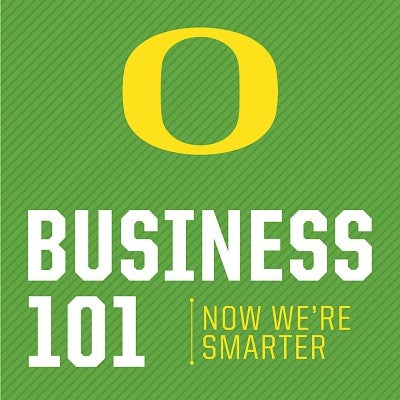
Business 1O1 is a podcast that focuses on the basics of one classic classroom subject. It is produced by educators and follows strong pedagogy. It has the appeal of an entertaining podcast but with better structure and pedagogical principles.
How to Use It for 1O1 or Intro Courses
General introductory courses like Business 1O1 or Psychology 1O1 can assign and use episodes throughout the course for different topics.
Specific introductory courses like Negotiations 1O1 can use the topical episodes early, during the first few weeks. For instance, an Intro to Negotiations could could include our Negotiations 1O1 episode alongside the first week's reading.
Use the Episodes in All Classes
The episodes are very versatile. They are not too technical, are about strategic thinking, and are inherently interdisciplinary. Many courses can benefit from podcasts outside of their core topic. For instance, the Negotiations 1O1 episode can fit well in a psychology, sales, marketing, or communications course. The Finance 1O1 episode could be used in introductory courses on Consumer Behavior, Entrepreneurship, and so forth. And, the Professionalism 1O1 episode fits in almost everywhere.
Is the Podcast Uniquely "Oregon"?
No, not really. The character is slightly quirky, playing off Oregon's reputation, but the content is generally accessible.
Who is the Target Audience of the Podcast?
Students and general listeners. The podcast works as a general interest podcast, but it has the educational precision to also work in the classroom. It is our belief that everyone should and would benefit from listening to every single episode. We truly believe that when you understand the 1O1 of anything, you'll understand everything better.
Materials Podcast Summary
Every episode is posted with a “What We Learned" section that explains the core ideas of the episode and vocabulary. We will email this summary with the quiz.
You Do Not Even Need to Listen to the Episodes
This podcast is designed by professors, and we know professors are busy. So, we have made sure educators do not need to listen to the episodes to use them in their syllabus. The quizzes and the summary provide enough understanding and materials for using the podcast in a course.
Who is the Podcast Made by?
The podcast was produced by a team from the University of Oregon, headed by assistant professor of marketing Troy Campbell. Campbell has expertise in design psychology and media, and is a former Disney Imagineer researcher. He and his crew bring the fun and the education.
This is an Education Podcast
We are first and foremost an education podcast, and we focus on good learning principles over flash. While mainstream radio and mainstream podcasts tend to favor stories, we always favor education. We believe that there is an amazing promise in the classroom, and that if the class is done right, and the education is orchestrated correctly, people will leave better and inspired. We believe learning is for doing. Theory is for practice. And, education should be useful. There is no dichotomy between what is “academic” and what is “practical" when a class is well done. When a class is done right, it all blends together, leaving the learner and the world better.
The podcast shows what great classes look like and provides a behind the scenes view into academia.
“So much of academia is hidden,” Campbell said. “Either it happens in classes few people attend, or in labs or on library shelves no non-researchers ever go. I wanted to make these spaces and moments come alive. There is magic happening on campuses every day, and people don’t know what it is and also how hard it is to make.”
Rather than guest lectures, we have guest conversations, in which an academic and professional talk together as equals in the pursuit and dissemination of education.
These guest conversations feature professionals who believe so much in the power of education they have personally become involved in the education process as donors, collaborators, and board members. The guests come to share their knowledge and passion for education in conversation with an academic.
In generally, we seek to have guests that integrate well with the material and communicate in ways that follow learning principles.
The Structure of Each Episode
Intro (2 minutes)
- A summary of the podcast and an "audio tease" of an interesting part
The Class (25 to 50 minutes)
- What Is the Topic?: A summary of the topic, dispelling myths, usually a core metaphor or story
- Background on the Professor: How they got involved, very short
- Enter into the Class: Learning the topic through examples
- Research: How cutting-edge research illuminates the topic
- Why It Matters: A discussion of why the topic matters so much to our personal lives and the world
- Bonus Segments: Comedy sketches, vocabulary clarifications, and life tips. Examples include: Iron Man negotiating with Nike, the perfect handshake, and an extended look at the math behind asteroid mining.
Now We're Smarter (3 minutes)
- A summary of the episode
Drinks after Class (4 to 12 minutes)
- Clarifications on topics, including student and academic related content
